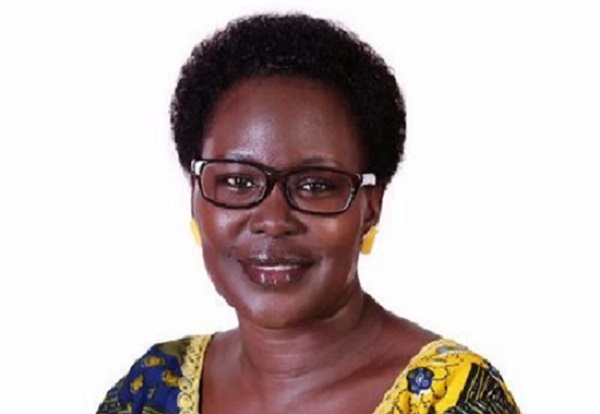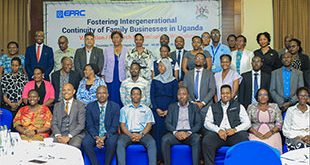
Kampala, Uganda | AGNES NANTABA | In 2017, Agnes Atim Apea (PhD) popularly known as ‘Mama Rice’; especially in northern Uganda, was named among most innovative women in the world by British Broadcasting Corporation (BBC). She joined the list of inspirational and influential women around the world for her role in the fight for social justice among the women and girl child education. It was rewarding for an expert sociologist who successfully exploits opportunities in agriculture to enable women to economic freedom. Atim maintains her passion for women empowerment using business to solve social problems.
“My kind of business is not conventional because it involves identifying the available resource and using it to empower the community; especially women,” said Atim.
In 2012, Atim returned home from United Kingdom where she was enrolled for PhD at the University of Reading in International Development to undertake her thesis on participatory development in post-conflict Amolatar district. She hails from a war torn area in Lango sub-region, Northern Uganda.
“The intention was to use research to improve lives through participatory development targeting how people can reconstruct themselves in post war zones,” said Atim.
She mobilised up to twenty women and started a rice growing project as a high end food that could fetch higher returns if handled well throughout the value chain. The rice growing project has earned her the name ‘Mama Rice’ in the region something she brags about for reconstructing the lives of women and their families in the post-war zone.
The group has since grown to over 1000 women in the sub-region. And for the same project, Atim was also named most influential farmer in the region and received an award from President Museveni for creating change in the community.
Perhaps, her zeal to empower women stems from her disadvantaged background, being the first born in a family of eight girls. Just like in any other African setting where girls were regarded as less useful compared to boys, it was a struggle for Atim to go through school. At some point, she had to do odd jobs like working as a maid in people’s homes and labouring in gardens to raise school fees. She almost gave up on school after the death of her parents but fate got her into the hands of a strict grandmother who also emphasised the value of education and hard work for any aspiring successful woman.
Fate could only land her at VH Public School, St Catherine Girls School and Awelo secondary school. She would qualify for a course at Makerere University or any other higher institution with the additional 1.5 points for girls but was failed by money.
“I took on the admission at Aduku NTC near home to pursue education because at that time, a teaching job was a sure deal,” she says.
But with passion to empower the community, Atim applied for and earned a job as a social worker with a Christian based NGO and since then, she has worked with several ones for the same cause. In late 2017 she was appointed to head the Local Government Finance Commission in Kampala.
Apea also unsuccessfully set one leg into politics in 2016 running for Woman MP Amolatar district.
Being an instrumental women activist, Atim maintains that Uganda as a country has done tremendously well in terms of policy reform.
“We have over 30% women in leadership but our focus should not be on counting numbers,” she says, “We’ve got so much to do with livelihoods and women empowerment because when a woman has money, it breaks down to reducing maternal mortality and child marriages among others.”
At 45 years, Atim still looks at reinforcing the achievements in women empowerment for sustainable development. She is married to Jacob Apea with whom they have three children.
 The Independent Uganda: You get the Truth we Pay the Price
The Independent Uganda: You get the Truth we Pay the Price





